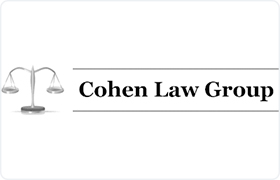Hanscom Afb Land Use & Zoning Lawyer, Massachusetts
Sponsored Law Firm
-
 x
x

Click For More Info:
-
Cohen Law Group
500 Commercial St Unit 4R Boston, MA 02109» view mapBusiness, Real Estate, Accident & Injury Over 50 Years Of Experience
With over 50 years of experience, the Cohen Law Group is a well-established law firm located in the heart of Boston’s historic North End.
800-790-5110
Nellie R. Rosen
Land Use & Zoning, Eminent Domain, Real Estate, Banking & Finance
Status: In Good Standing
FREE CONSULTATION
CONTACTMichael Eliot Rubin
Business Organization, Corporate, Land Use & Zoning, Employment
Status: In Good Standing
FREE CONSULTATION
CONTACTDavid B. Mack
Land Use & Zoning, Litigation, Corporate, Contract
Status: In Good Standing Licensed: 29 Years
 Herbert Cohen Boston, MA
Herbert Cohen Boston, MA Practice AreasExpertise
Practice AreasExpertise
